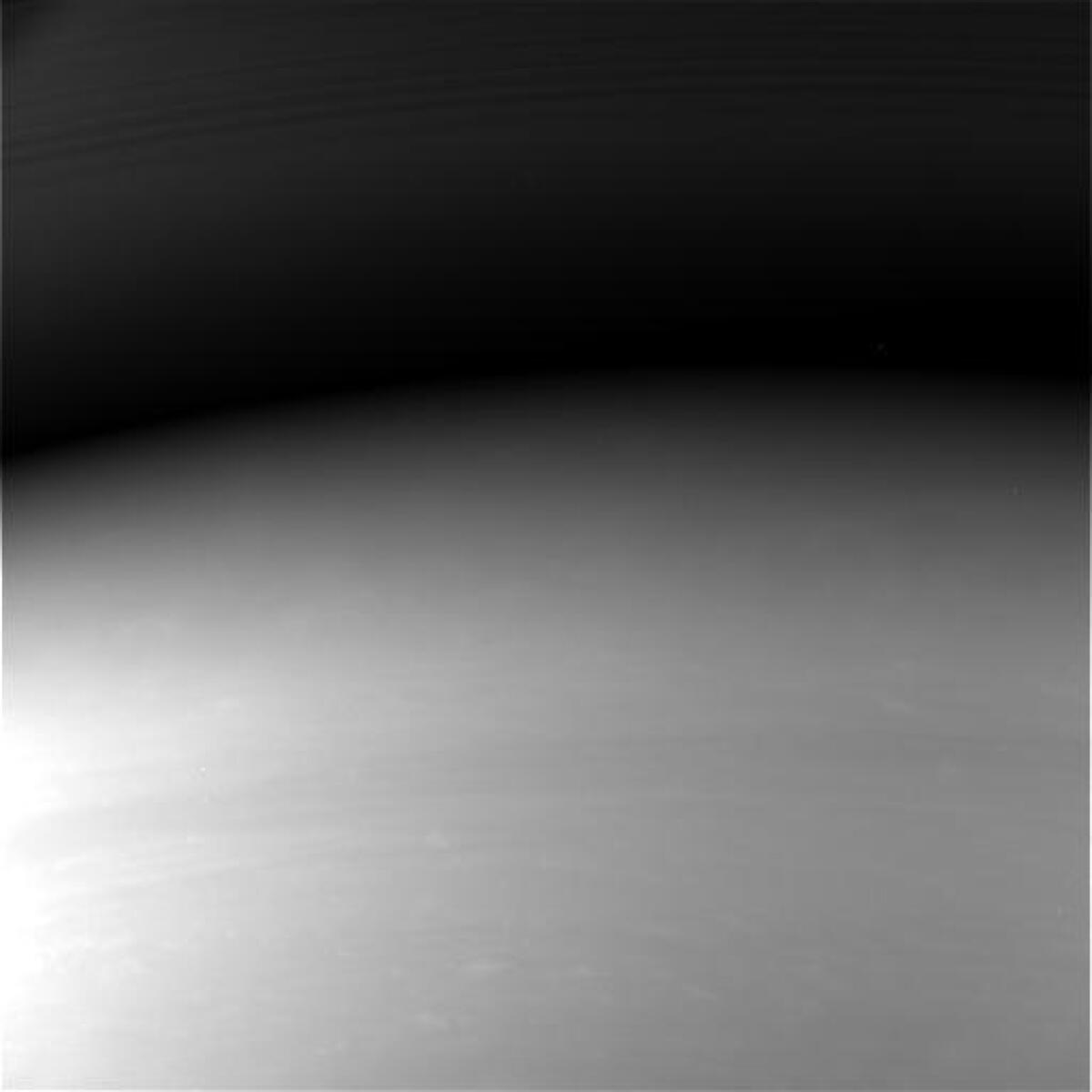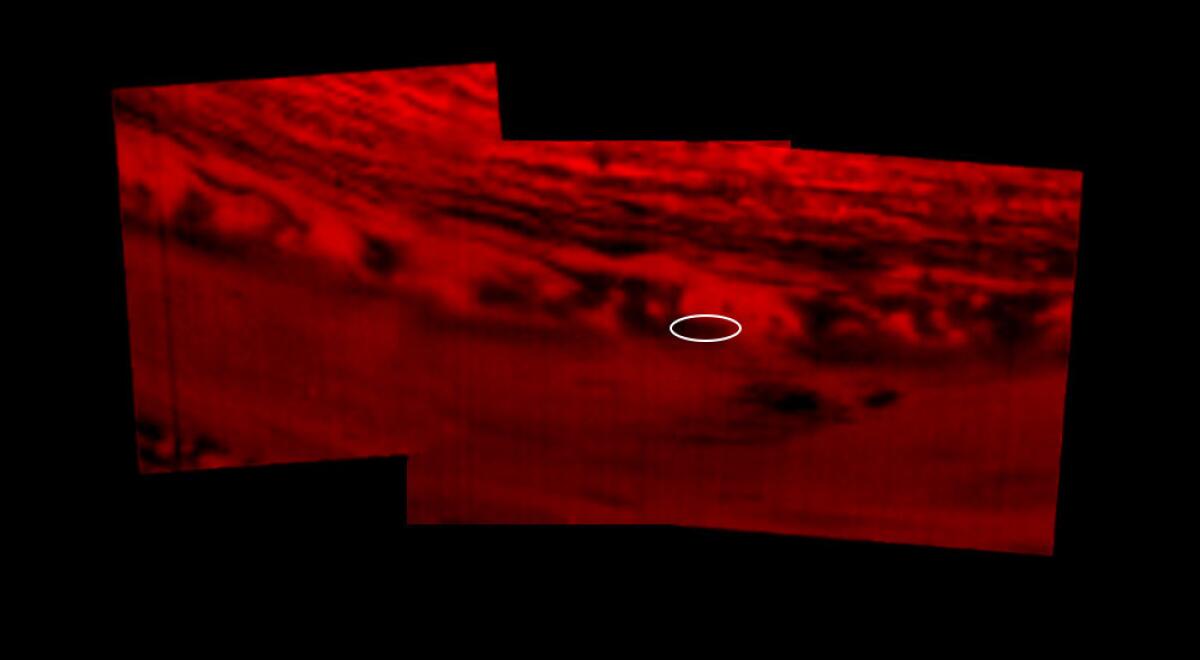See Enceladus set behind Saturn and Cassini’s last view of the ringed planet
- Share via
The Cassini mission to Saturn may be over, but scientists and the rest of humanity will be poring over images from the spacecraft for years to come.
Below is the very last picture Cassini took of Saturn as it sped toward the planet at 76,000 miles per hour:

Full coverage of Cassini's Grand Finale »
Mission scientists at
The spot is marked by the white ellipse:

One of Cassini’s most important — and surprising — discoveries during its 13 years at Saturn was that the moon Enceladus has an ocean of liquid saltwater beneath its frozen surface. That ocean is heated by hydrothermal vents, similar to those found on Earth.
Scientists are eager to return to Enceladus as they search for evidence that life could exist elsewhere in the solar system. On Friday, mission leaders vowed to send a spacecraft to the icy moon.
They also shared this movie of Enceladus setting behind Saturn. The images were taken on Wednesday.

Follow me on Twitter @LATkarenkaplan and "like" Los Angeles Times Science & Health on Facebook.
MORE ON THE CASSINI MISSION
Cassini, the NASA spacecraft that expanded the search for life beyond Earth, dies in Saturn’s sky
‘OK. Let’s do it!’ An oral history of how NASA’s Cassini mission to Saturn came to be
Epic storms, new moons and worlds that might host life: Here are Cassini's greatest discoveries
Check out Cassini’s jaw-dropping discoveries of Saturn’s moons




